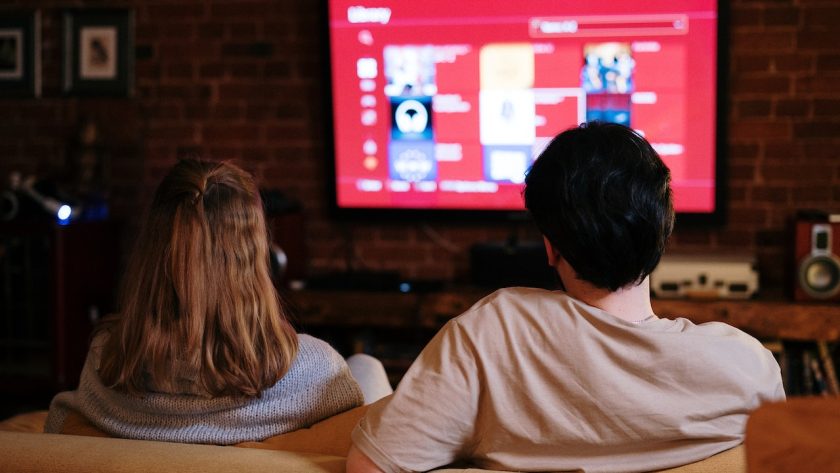Understanding the Impact of Excessive Gaming on Children and Teens
Excessive gaming can have a significant impact on the overall well-being of children and teenagers. One of the most noticeable effects is the decline in academic performance. Spending excessive amounts of time playing video games can lead to neglecting schoolwork, resulting in lower grades and decreased motivation to excel academically.
Furthermore, excessive gaming can also negatively affect physical health. Sitting for extended periods while playing video games can contribute to sedentary behavior, leading to weight gain and an increased risk of obesity. Additionally, prolonged screen time may cause eye strain and vision problems among young gamers.
Another concerning consequence of excessive gaming is its potential impact on social development. Children and teens who spend too much time playing video games may become isolated from their peers, missing out on important social interactions and opportunities for personal growth. This isolation can contribute to feelings of loneliness, anxiety, and depression.
It is crucial for parents and guardians to recognize these potential negative impacts that excessive gaming can have on their children’s lives. By understanding these consequences, they are better equipped to implement strategies that promote a healthy balance between gaming activities and other aspects of life such as academics, physical activity, socializing with friends, and pursuing hobbies or interests outside the virtual world.
Identifying the Warning Signs of Gaming Addiction in Your Child
Excessive gaming can have detrimental effects on the overall well-being of children and teens. It is important for parents to be able to identify the warning signs of gaming addiction in their child, so that appropriate intervention can take place. One common warning sign is a preoccupation with gaming, where the child constantly thinks about playing games or becomes irritable when not allowed to play. They may also neglect other responsibilities such as schoolwork or chores in order to spend more time gaming.
Another red flag is an increasing tolerance for gaming, where the child needs to play for longer periods of time in order to feel satisfied. They may become restless or agitated if they are unable to access their games or if their screen time is limited. Additionally, withdrawal symptoms can occur when they are not able to engage in gaming activities, including mood swings, irritability, and difficulty concentrating on other tasks.
Changes in behavior and social interaction can also indicate a potential addiction problem. If your child starts isolating themselves from family and friends in order to prioritize gaming over real-life relationships, it may be a cause for concern. They may also experience a decline in academic performance due to excessive time spent on games.
Recognizing these warning signs early on allows parents to intervene and help their child find healthier ways of engaging with technology. By being vigilant and observant about any changes in behavior related to excessive gaming habits, parents can provide necessary support and guidance towards establishing a balanced lifestyle for their children.
The Role of Parental Control in Managing Gaming Time
One important aspect of managing gaming time for children and teens is the role of parental control. Parents can play a crucial role in setting limits and boundaries on their child’s gaming activities. By utilizing parental control features available on gaming consoles, computers, and mobile devices, parents can restrict access to certain games or set specific time limits for gaming sessions.
Parental control tools allow parents to monitor and regulate their child’s gaming habits. They can track the amount of time spent playing games, as well as block or filter inappropriate content. These controls provide an effective way for parents to ensure that their child is not spending excessive amounts of time engaged in gaming activities.
Additionally, parental control features enable parents to have open discussions with their child about responsible gaming habits. By involving them in the decision-making process regarding screen time limits and game choices, parents can foster a sense of responsibility and self-regulation in their child. This collaborative approach allows for healthy communication between parent and child while still maintaining necessary boundaries around gaming activities.
In conclusion (oops!), it is essential for parents to take an active role in managing their child’s gaming time through the use of parental control tools. By implementing these measures effectively, they can help promote balanced screen usage while also ensuring that their child does not develop an unhealthy dependency on video games.
Setting Realistic Limits and Boundaries for Gaming Activities
Setting realistic limits and boundaries for gaming activities is crucial in promoting a healthy balance between screen time and other important aspects of life. It is essential for parents to establish clear guidelines regarding the amount of time their child can spend playing games, as well as when and where they are allowed to do so.
One effective approach is to set specific time limits for gaming sessions. For example, you might decide that your child can play video games for a maximum of one hour per day on weekdays, and two hours per day on weekends. By setting these limits, you help your child understand that gaming should not consume all their free time and encourage them to engage in other activities.
In addition to time limits, it is also important to establish boundaries around when gaming is allowed. For instance, you may choose to restrict gaming during school nights or at certain times of the day when homework or family responsibilities need to take priority. By clearly communicating these expectations with your child, you can help them develop self-discipline and learn how to manage their own screen time effectively without constant monitoring from parents.
Effective Strategies for Monitoring and Controlling Gaming Habits
One effective strategy for monitoring and controlling gaming habits is to establish clear rules and guidelines. Sit down with your child and discuss the amount of time they are allowed to spend playing games each day or week. Set specific limits that both you and your child agree on, such as no more than two hours of gaming per day or no gaming until homework is completed. By clearly outlining these expectations, you can help your child develop a healthy routine and prevent excessive gaming.
Another strategy is to use parental control features on devices and game consoles. Many modern devices have built-in settings that allow parents to monitor and restrict their child’s access to certain games or limit overall screen time. Take advantage of these tools by familiarizing yourself with the settings available on your child’s device, setting up appropriate restrictions, and regularly checking in to ensure they are being followed.
Regularly checking in with your child about their gaming habits is also crucial in effectively monitoring and controlling their behavior. Engage in open conversations where you ask questions about what games they are playing, how much time they are spending on them, and how it makes them feel. This will not only give you insight into their gaming habits but also provide an opportunity for discussion around responsible gaming practices. By maintaining open communication channels, you can address any concerns or issues that may arise before they become more serious problems.
By implementing these strategies for monitoring and controlling gaming habits, parents can play an active role in ensuring their children maintain a healthy balance between virtual entertainment and other aspects of life.
Encouraging Healthy Alternatives to Excessive Gaming
One way to encourage healthy alternatives to excessive gaming is by promoting physical activities. Encourage your child to participate in sports, join a dance class, or engage in outdoor activities such as biking or hiking. Physical exercise not only helps improve overall health and well-being but also provides an outlet for stress and pent-up energy.
Another alternative is to introduce your child to creative hobbies or interests. Encourage them to explore their artistic side through drawing, painting, or playing a musical instrument. Engaging in creative pursuits can help stimulate the mind and provide a sense of accomplishment outside of gaming.
Additionally, fostering social interactions is crucial in diverting attention away from excessive gaming. Encourage your child to spend time with friends and engage in group activities such as team sports, board game nights, or community clubs. This will help develop important social skills while providing an opportunity for meaningful connections beyond the virtual world.
By promoting physical activities, encouraging creative hobbies, and fostering social interactions, you can effectively steer your child towards healthier alternatives instead of excessive gaming. Remember that finding balance is key – allowing them some designated gaming time while also encouraging diverse interests will create a well-rounded approach towards managing their screen time habits.
Building Open Communication Channels with Your Child About Gaming
One of the most important steps in addressing gaming addiction in children is building open communication channels with them about their gaming habits. It is crucial to create an environment where your child feels comfortable discussing their interests and concerns without fear of judgment or punishment. By fostering a non-judgmental atmosphere, you can encourage your child to openly share their thoughts and feelings about gaming.
Start by initiating conversations about gaming in a casual manner, showing genuine interest in what they enjoy about it. Ask open-ended questions that allow for more than just a simple yes or no answer. For example, instead of asking „Do you like playing video games?” try asking „What do you enjoy most about playing video games?” This encourages your child to express themselves and helps you gain insight into their perspective on gaming.
Listen actively when your child talks about gaming, giving them your full attention and demonstrating empathy towards their experiences. Avoid interrupting or dismissing their opinions, even if you may not fully understand or agree with them. Remember that the goal is not necessarily to change your child’s mind but rather to establish trust and understanding between both parties.
By consistently engaging in these open conversations, you are not only strengthening the bond with your child but also creating an opportunity for them to reflect on their own behaviors and choices regarding gaming. This dialogue allows for mutual learning as both parent and child can exchange insights and perspectives on healthy boundaries and responsible use of technology.
Collaborating with Your Child to Create a Balanced Schedule
Creating a balanced schedule for your child is essential in managing their gaming habits. By involving them in the process, you can ensure that they have a say in how their time is allocated and feel empowered to make responsible choices. Start by sitting down with your child and discussing their daily routine. Ask them about their priorities, such as schoolwork, extracurricular activities, and socializing with friends.
Once you have identified these key areas, work together to allocate specific time slots for each activity. It is important to set realistic limits on gaming time while also allowing for flexibility and free time. Encourage your child to take breaks during long gaming sessions and engage in other activities that promote physical exercise or creative thinking.
Remember that collaboration is key when creating a balanced schedule. Listen to your child’s input and concerns about how much time they want to dedicate to gaming versus other activities. By involving them in the decision-making process, you are teaching them valuable skills such as time management and prioritization.
By collaborating with your child to create a balanced schedule, you are fostering open communication and mutual understanding about the importance of maintaining a healthy balance between various activities. This approach empowers both parents and children alike by promoting responsibility and self-discipline while still allowing for enjoyment of gaming within reasonable limits.
Seeking Professional Help for Severe Gaming Addiction Cases
Seeking professional help for severe gaming addiction cases is crucial in order to address the underlying issues and provide appropriate treatment. When a child or teen exhibits signs of excessive gaming that are negatively impacting their daily life, it may be necessary to seek assistance from qualified professionals such as therapists or counselors specializing in addiction.
These professionals can conduct thorough assessments to determine the severity of the gaming addiction and identify any co-occurring mental health disorders. They can also help develop personalized treatment plans tailored to meet the needs of each individual. This may involve various therapeutic approaches, such as cognitive-behavioral therapy (CBT) or family therapy, aimed at addressing both the addictive behaviors and any underlying emotional or psychological factors contributing to the addiction.
In addition to providing direct support for individuals struggling with gaming addiction, seeking professional help can also offer guidance and resources for parents. Professionals can educate parents about effective strategies for managing their child’s gaming habits, setting boundaries, and fostering healthy alternatives. By working collaboratively with professionals experienced in treating gaming addiction, families can gain valuable insights and tools to navigate this challenging issue together.
Empowering Parents: How to Stay Informed and Educated about Gaming Addiction
Parents play a crucial role in understanding and addressing gaming addiction in their children. Staying informed and educated about this issue is essential for effective intervention. One way to do this is by actively seeking out information from reliable sources such as books, websites, or support groups dedicated to gaming addiction. By staying up-to-date on the latest research and developments in the field of gaming addiction, parents can better understand its impact on their child’s mental health.
Another important step in staying informed is maintaining open lines of communication with professionals who specialize in gaming addiction. This includes psychologists, therapists, or counselors who have experience working with individuals struggling with excessive gaming habits. Seeking guidance from these experts can provide parents with valuable insights into the underlying causes of gaming addiction and offer strategies for managing it effectively.
Additionally, attending workshops or conferences focused on gaming addiction can also be beneficial for parents looking to stay informed. These events often feature speakers who are experts in the field and can provide valuable information on topics such as identifying warning signs, setting boundaries, and fostering healthy alternatives to excessive gaming. By actively participating in these educational opportunities, parents can gain knowledge that empowers them to make informed decisions regarding their child’s well-being.
Staying informed about gaming addiction is an ongoing process that requires dedication and effort from parents. By continuously educating themselves about this issue through various means such as reading books, consulting professionals, or attending workshops; they can equip themselves with the necessary tools to address their child’s addictive behaviors effectively.
What is gaming addiction?
Gaming addiction, also known as gaming disorder, is a pattern of excessive or compulsive gaming that disrupts a person’s daily life and functioning. It is characterized by a loss of control over gaming, prioritizing gaming over other activities, and experiencing negative consequences as a result.
How can excessive gaming impact children and teens?
Excessive gaming can have various negative impacts on children and teens. It can lead to social isolation, poor academic performance, sleep disturbances, physical health issues, and emotional problems such as aggression, irritability, and depression.
What are the warning signs of gaming addiction in my child?
Warning signs of gaming addiction in children may include a preoccupation with gaming, loss of interest in other activities, neglecting responsibilities, withdrawal from family and friends, difficulty controlling or stopping gaming, and experiencing withdrawal symptoms when not gaming.
How can parental control help in managing gaming time?
Parental control software and features can be used to limit the amount of time children spend gaming, block inappropriate content, and set restrictions on online interactions. It can help parents establish and enforce healthy boundaries for gaming.
How can I set realistic limits and boundaries for my child’s gaming activities?
Setting realistic limits involves establishing specific rules for gaming time, such as limiting the number of hours per day, designating certain days as „game-free,” and ensuring that gaming doesn’t interfere with essential activities like homework, chores, and socializing.
What are some effective strategies for monitoring and controlling my child’s gaming habits?
Effective strategies include keeping gaming devices in shared family areas, monitoring screen time and game content, discussing gaming expectations with your child, and using parental control tools to track and manage gaming activities.
How can I encourage healthy alternatives to excessive gaming?
Encouraging healthy alternatives involves introducing your child to a variety of activities such as sports, hobbies, arts, and socializing with friends. It is important to provide opportunities for physical exercise, creative expression, and social interaction as alternatives to excessive gaming.
How can I build open communication channels with my child about gaming?
Building open communication involves actively listening to your child’s perspectives on gaming, discussing the potential risks and benefits, expressing your concerns without judgment, and fostering a non-blaming environment where your child feels comfortable sharing their thoughts and feelings.
How can I collaborate with my child to create a balanced schedule?
Collaborating with your child involves discussing and negotiating a schedule that includes agreed-upon time for gaming, as well as time for other activities like homework, family time, outdoor activities, and pursuing hobbies. By involving your child in the decision-making process, they will feel more invested in maintaining a balanced schedule.
When should I seek professional help for severe gaming addiction cases?
If you notice severe signs of gaming addiction in your child, such as extreme withdrawal, neglect of personal hygiene, academic decline, or significant impairment in daily functioning, it is advisable to seek professional help. A mental health professional with expertise in gaming addiction can provide assessment, counseling, and appropriate treatment options.
How can I stay informed and educated about gaming addiction as a parent?
To stay informed, you can regularly seek reliable information from reputable sources, such as educational websites, books, articles, and trusted organizations specializing in gaming addiction. Additionally, attending parenting workshops, joining support groups, and engaging in discussions with other parents can provide valuable insights and knowledge about gaming addiction.




